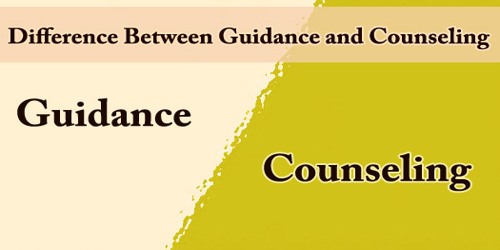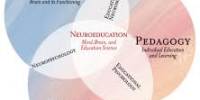Both Guidance and counseling help individual discover their potentialities and are often used synonymously. While in guidance the main target is created on being attentive to the matter, on which ready-made solution is given by the expert. Counseling aims at discussing and understanding the matter, advising, and empowering him to require a call concerning his/her career or life goals in one-to-one sessions.
Definition of Guidance –
Guidance is a continuous process in its nature, and it is needed right from childhood through adolescence, adulthood, and even old age. It is not a direction but a process. The guidance doesn’t focus on solving the problem of an individual rather help him/her solve it.
An expert in the field in question, say career choices, advises individuals on how to go about everything. The guidance aims at making people know the pros and cons of their decisions. It enlightens individuals on how to make the right choices. The experts make individuals know that choices have consequences, especially in the future.
Guidance is the approach used to help learners choose their courses or career paths wisely. It aims at helping the person develop themselves for their future. It serves individuals with ready solutions. Guidance results in self-development and helps a person to plan his present and future wisely.
Definition of Counseling –
The term counseling is defined as talking therapy, in which a person (client) discusses freely his/her problems and share feelings, with the counselor, who advises or helps the client in dealing with the problems. The objective of counseling is to bring voluntary changes in the client. In counseling, the client alone is responsible for the decision or the choices he/she makes, though the counselor may assist in this process by his warmth and understanding relationship.
The discussion between the client and counselor is often in a confidential environment. Counseling digs into the root of the problems before identifying potential solutions. The counselor works to help the client view life from a positive viewpoint. It is not just giving advice or making a judgment, but helping the client to see clearly the root of problems and identify the potential solutions to the issues. The counselor also changes the viewpoint of the client, to help him make the right decision or choose a course of action. It will also help the client to remain intuitive and positive in the future.
Key Differences between Guidance and Counseling –
The significant differences between guidance and counseling are given in the following points:
- The guidance focuses on helping a person chose what they value the most and helps in the process of development rather than the direction of that development.
- Counseling is the reaction to the occurrences and negative situations that need to be corrected and changed on a personal level.
- Guidance helps an individual make the best choices, and it gives clients ready answers.
- Counseling helps a person change their perspective. It also helps them come up with their well-informed solutions.
- Guidance involves two heads coming up with a solution to issues
- Counseling involves the client choosing the best option without prior judgments/learning/experience.
- Guidance is a comprehensive process; that has an external approach.
- Counseling focuses on the in-depth and inward analysis of the problem until the client understands and overcame it completely.
- Guidance is given by a guide who can be any person superior or an expert in a particular field.
- Counseling is provided by counselors, who possess a high level of skill and undergone professional training.
- Guidance is the best approach to tackling educational and career problems.
- Counseling is best employed in tackling socio-psychological and other personal problems.
- Guidance is the process of understanding the issues that impede a person’s progress and development in the various aspects of life and then providing advice on what is the right course of action for that person.
- Counseling also involves understand the person’s problems, but the counselor plays a more interactive role in helping the person find the solutions that will help him or her overcome the obstacles being faced.
- In guidance, confidentiality is not a guarantee. It can be conducted for an individual or a group.
- In counseling, we are guaranteed confidentiality since the sessions are always one to one.
Both guidance and counseling aimed at solving problems. However, guidance’s main aim is giving a solution, while counseling focuses on finding problems, working on them before finding a solution through numerous methods such as therapy, psychotherapy, and more. Both the process attempts to solve the problems of the client whereby the participation of both client and the expert should be there.
Information Sources:
















